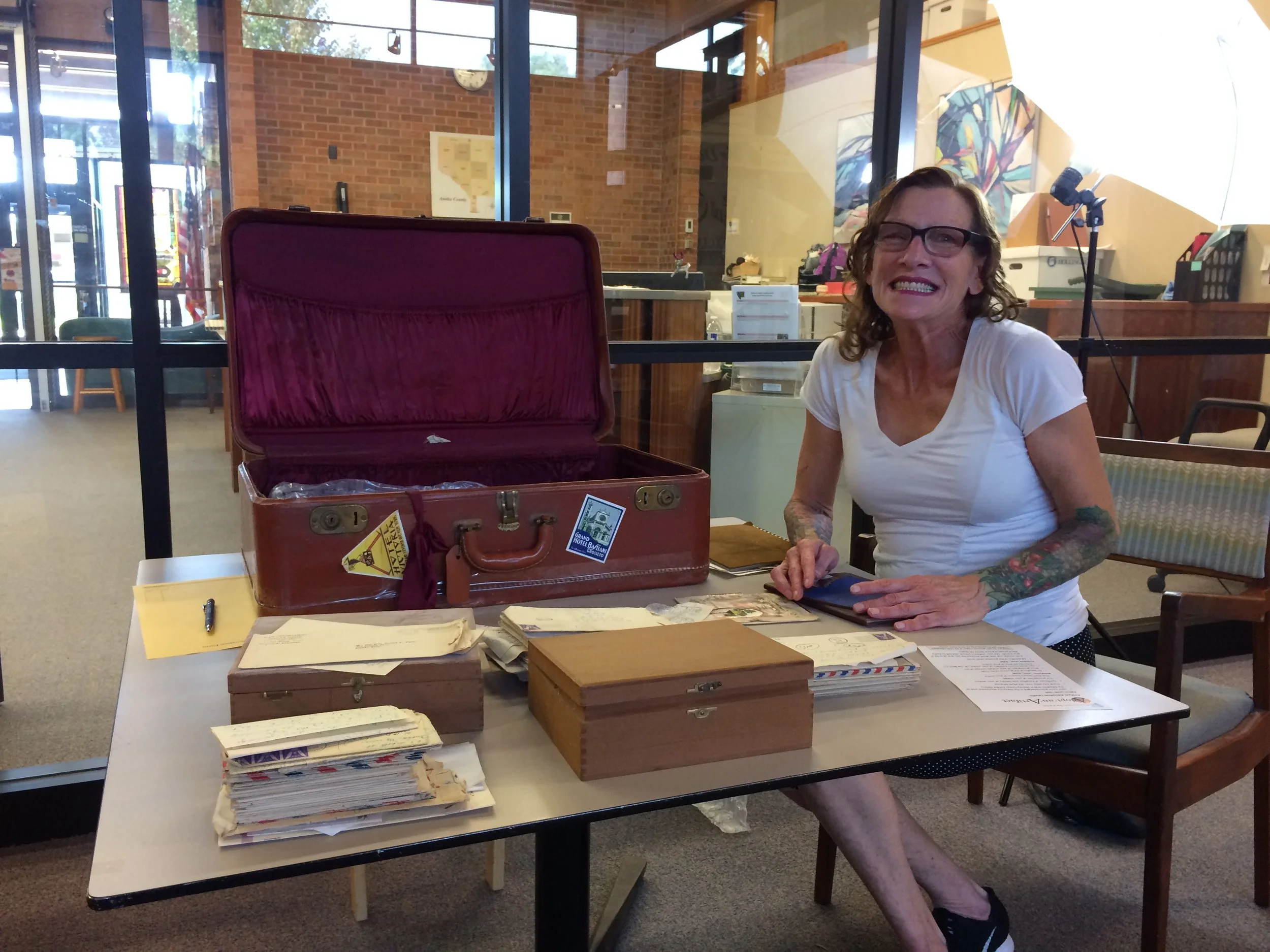we’re more than our books
Our museum is more than the bricks, the collection, and the computers. It’s a community of friends.
1. Patrons as friends.
It’s like the history version of Cheers—we know your name. And if we don’t, we will learn it! Many of our patrons are “regulars” who pop in to read the newspapers, login our WiFi, or use the public access computer terminals. With one we joke about making a name sign to hang above “his” comfy chair in the entry way. With another we comment on their snazzy new glasses. Still others update us on medical issues, the health of a pet, the visit to family over the weekend. Many wait for the city bus to appear on the
corner—using our building to dodge the snowflakes or blazing sun. Then there’s the relationships that develop between us and the researchers as we become part of their quest to discover ancestors, childhood homes, or the next chapter of a book. When you’re digging for gold and you find that nugget in a newspaper or folder, you can count on our team to share the joy of success! The best part? When we’re paid in cookies and chocolate! Relationships do pay off.
“I go there frequently, not just to pick up books, but also to use the computer and just see the people who work there.”
— Marinell Winston
2. People find new lives here.
One summer day a couple sat in the back corner of the library, reading and writing. An uncomfortable situation arose for our staff and patrons regarding the odor migrating across the room. With as much compassion as possible, staff approached the couple and requested they return after a shower. It was then that their story poured out.
They had been living in a tent, trying to find work for weeks. The longer they remained in this situation, the bleaker it had begun to look. Staff made some phone calls and soon found the couple resources, said goodbye, and continued on with the day. We didn’t see them for a couple weeks.
When they returned, the transformation was enormous—showered and clean, fresh clothes, and smiles. They still lived in the tent, they said, but life was looking up.
They had been interviewing for jobs and had just been hired at a fast food location in town. Saving for an apartment now seemed possible.
On their third visit, we celebrated that achievement.Not all stories are so dramatically successful. Some days it’s just using Google translate to help a new immigrant print some documents. Other days we help a patron navigate an email login or provide some extra paper towels for them to tidy up in the bathroom. Sometimes it’s just as easy as providing a safe space that’s warm or cold, depending on the season.
Either way, the ability for ACHS to serve the community in these ways makes our museum special. History is the story of the past, but we’re becoming part of the story today.
A patron gave us this note after using our public access computers to search for a job.
3. We become part of the family.
In any business, relationships play a crucial role in maintaining trust and loyal customers. At ACHS, the relationships we build with many people involve personal stories, family history, and getting to know their lives in order to preserve them properly. This brings joy as well as sorrow.
Over the years, ACHS has lost many well-loved volunteers, donors, and members. We attend their funerals, we send cards, we cry—sometimes quite a lot. One thing we can do that’s different from other businesses, however, is lift up their memories to the community they lived in and keep their name alive.
Tom Ward served on the ACHS board of directors from 2005 to 2016 while also volunteering at events and writing a newspaper column. He passed away in 2017 and ACHS held a memorial service of sorts at the History Center to reminisce on his life.
Shortly after that, his family donated a considerable amount of his belongings, including letters and photos. Volunteers have since digitized these documents and we intend to use Tom’s words to tell the story of Anoka, Main Motor, and World War II. Stay tuned!
Jennifer, Tom Ward’s daughter, with a portion of his legacy collection.



